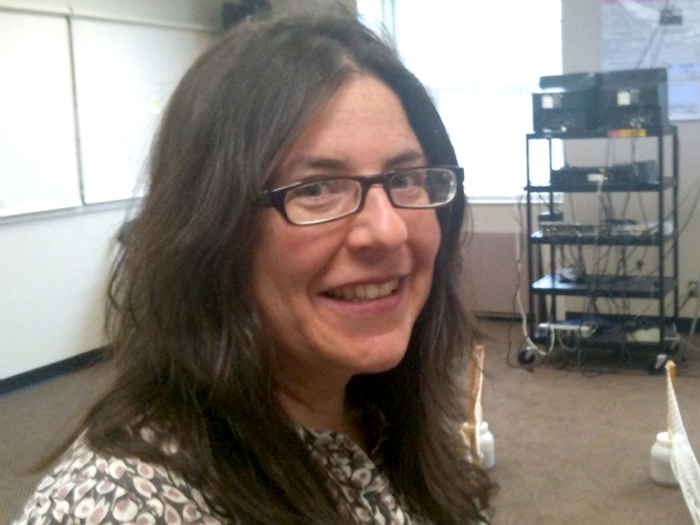CSI Associate Professor of Psychology Sarah Berger has won a coveted Fulbright scholarship to work abroad examining how locomotor development in infancy affects other types of development taking place at the same time.
Professor Berger will work for ten months at Haifa University in Israel, in collaboration with Professor Anat Scher, chair of that university’s Department of Counseling and Human Development. They meet at international conferences and share overlapping research interests, so it’s a “natural fit,” Professor Berger says.
Studying “typically developing” infants and toddlers, Dr. Berger will concentrate on projects to determine the effect of locomotor expertise on the ability of infants to carry out goal-directed plans, the effect of sleep on their motor learning, and the relationship between the onset of motor milestones and sleep quality.
She’s interested, too, in the effect of older siblings on younger siblings’ motor development, and the impact of the onset of motor milestones on the development of lateralization (footedness) in infancy.
Examining the interaction between different developmental domains, Dr. Berger feels, “will provide a more realistic depiction of how development occurs in infancy than what is usually portrayed in the literature.
“Most research tends to isolate psychological domains for study for the sake of convenience, but in reality infants are experiencing change in many ways (cognitive, motor, language, emotion, etc.) all at once. I hope to gain a better understanding of the nature and trajectory of typical development.”
At CSI since the fall of 2004, Professor Berger teaches Developmental Psychology and other specialty child development courses such as Motor Development, Infancy, and a lab course in experimental psychology that emphasizes developmental methodology.
Her primary research investigates typically developing infants’ cognitive development in the context of locomotion. “Specifically, I look at the development of problem-solving skills in the context of infants figuring out how to reach a goal, particularly when there is an obstacle in their way.”
She became interested in psychology when she worked in a psychology research lab as an undergraduate at the University of Texas-Austin (where she received BAs in Psychology and Spanish). “I loved the whole research enterprise, so I went to graduate school to continue my education. She earned MA and PhD degrees in Psychology, Cognition and Perception, with a Developmental concentration, at New York University.
She finds conducting research satisfying “because it requires so many different types of skills… the intellectual demands of collecting and analyzing data, figuring out the relationship between my own findings and the field in general, writing about my work for different audiences.”
There are other aspects of research as well, she says, aspects with which people may be unfamiliar. “For example, it requires a lot of creativity, such as designing equipment, figuring out effective visual communication of information to tell the story of the data, and writing in a style that is clear and even entertaining.”
Her research also requires technical skill: “Most of my data is coded from videotape, so my research assistants and I use a special video coding software that allows frame-by-frame analyses of movements. I also enjoy the collaborative nature of research. Most research cannot be done alone. It requires multiple people for data collection and analysis, brainstorming, and, for me, mentoring of students.”
Professor Berger says that she was “thrilled” to win the Fulbright, “honored to receive recognition for my work and support so that I can carry it out and have a productive and exciting sabbatical year.” Her students (undergraduate independent study students) were so proud of her, they nominated her for a Dolphin Award for Outstanding Scholarly Achievement.
She didn’t win that honor, but this year won the CSI Provost’s Research Fellowship from the college. Previously, she has won an American Association for University Women fellowship to conduct postdoctoral research at New York University and, as a graduate student, won the Martin D. Braine Memorial Award for Excellence in Research from the NYU Psychology Department.
In addition to providing a monthly stipend to conduct research collaboratively in a foreign country, the Fulbright scholarship also facilitates travel by “Fulbrighters” during their fellowship. So, while based in Haifa, Professor Berger will present two or three talks about her research in Istanbul, Turkey, and will travel within Israel to other universities for collaboration and presentation of her research.
The mission of the Council for the International Exchange of Scholars (CIES), the program that oversees the Fulbright, is to “increase mutual understanding between the people of the United States and the people of other countries.” This program is sponsored by the U.S. Department of State.
By Joel Cohen
















